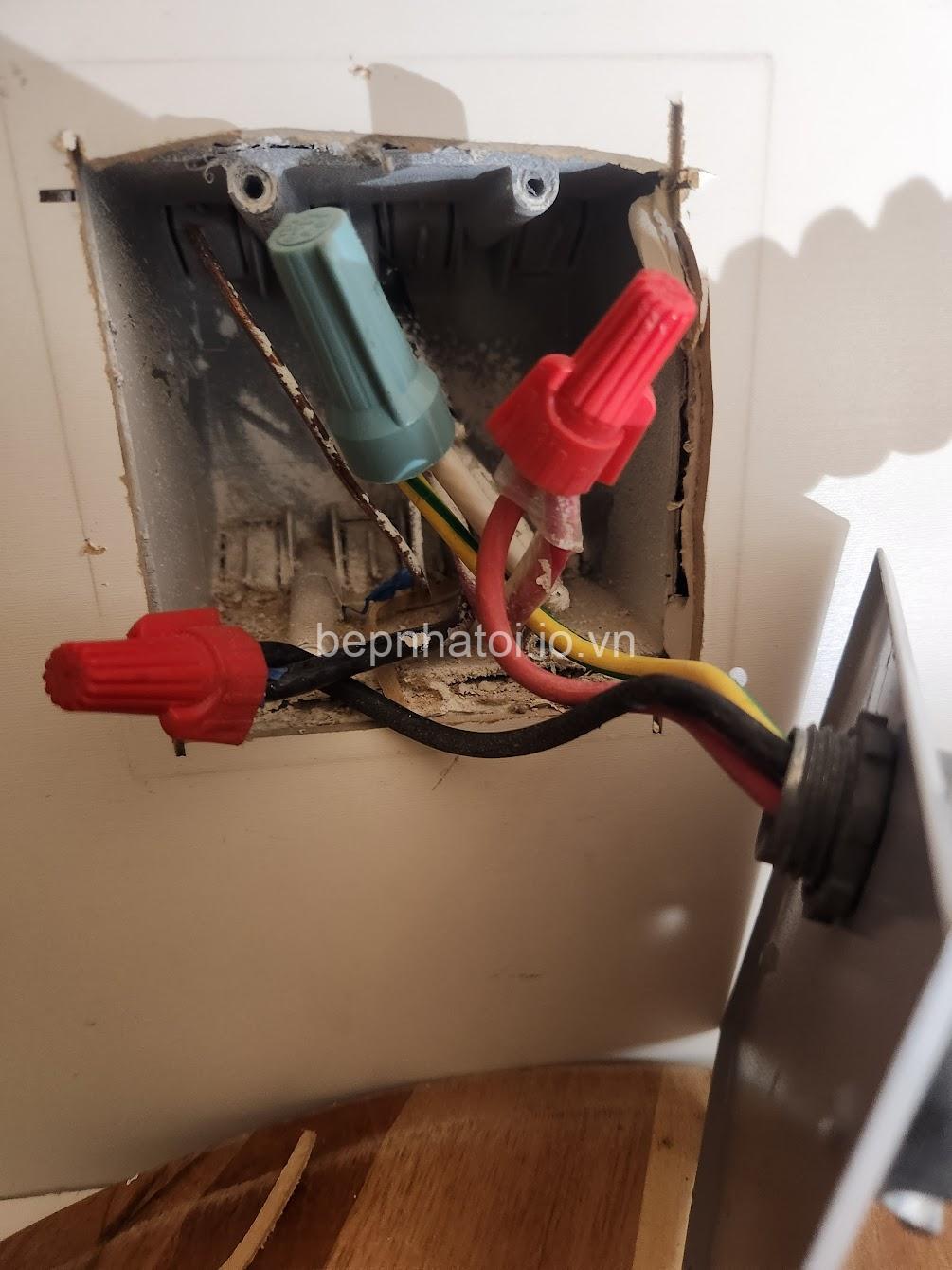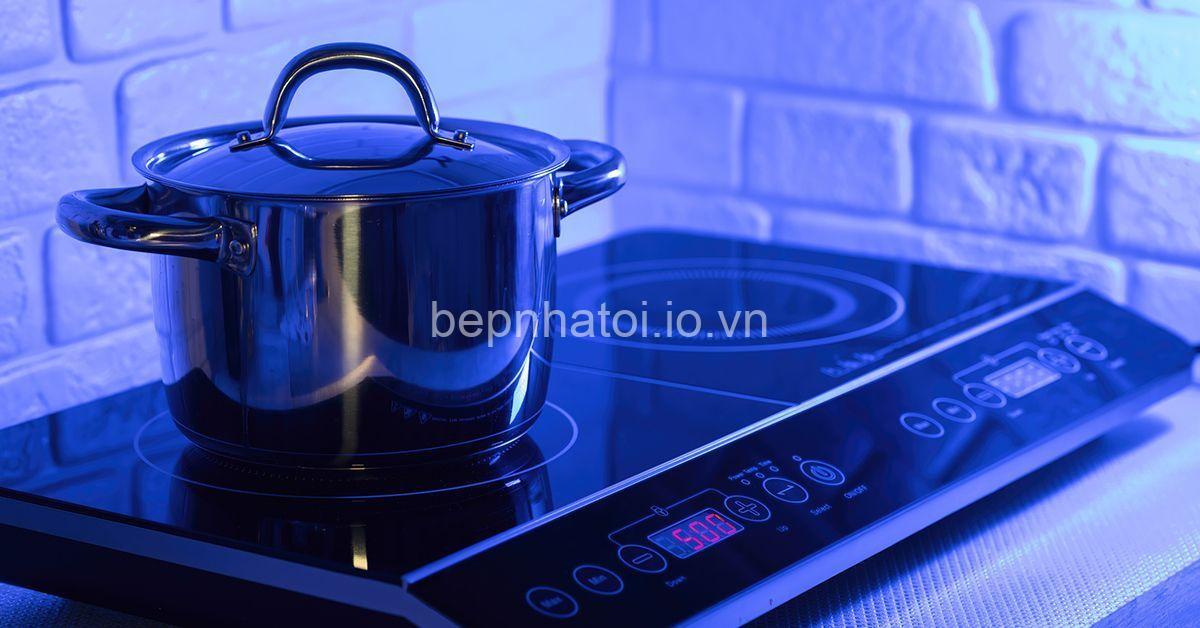
Electric Stove Grounding: How to Check for Safety. In today’s article, bepnhatoi.io.vn will explore with you in the most detailed and complete way. See now!
Why Grounding Matters for Your Electric Stove
Imagine a faulty wire inside your electric stove. Without a proper grounding system, that faulty wire could become a pathway for electricity to flow through the stove’s metal body. If you touch that metal body, you could receive a dangerous electrical shock. This is why grounding is essential – it acts like a safety valve, providing a path for errant electricity to safely flow to the ground, preventing shocks.
But the danger doesn’t end there. A faulty ground can lead to other serious problems, such as:
- Electrical Fires: A faulty ground can cause overheating and sparking, potentially leading to a fire.
- Stove Malfunction: A poorly grounded stove might not operate as intended, leading to inconsistent heating or even complete failure.
Think of it this way – grounding is like a safety net. It’s there to prevent a serious accident if something goes wrong.

Checking Your Stove’s Grounding: A Visual Inspection
The first step in determining if your electric stove is properly grounded is a visual inspection. Here’s what you should look for:
1. Identify the Ground Wire:
* The ground wire is usually green or bare copper. It should be connected to the stove’s connection point and the outlet.
* Look for the ground wire at the back of the stove where it’s plugged into the outlet. It might be hidden behind a cover or a panel.
* The ground wire should be securely connected. If it’s loose, damaged, or missing, it needs to be addressed.
2. Look for the Grounding Symbol:
* The grounding symbol is usually a triangle with a circle inside.
* Find this symbol on the stove’s body near the electrical connection.
* Look for the symbol on the outlet as well. It should be present on a grounded outlet.
3. Inspect the Outlet:
* A standard outlet has three prongs: one hot, one neutral, and one ground.
* The ground prong is usually the round one.
* A GFCI (Ground Fault Circuit Interrupter) outlet is a special type of outlet that has a test button and a reset button. These outlets are designed to protect against electrical shocks and are often used in areas prone to moisture, such as bathrooms and kitchens.
4. Additional Visual Checks:
* Check for signs of damage to the ground wire like frayed wires or broken connections.
* Look for loose connections at the stove’s connection point and the outlet.
* Check for signs of overheating around the stove’s electrical connections.
If you notice any issues during your visual inspection, it’s best to consult a qualified electrician.
Testing for Grounding: Using a Ground Fault Circuit Interrupter (GFCI) Tester
A GFCI tester is a handy tool for quickly checking if your stove’s ground is properly connected.
Here’s how to use a GFCI tester:
- Plug the GFCI tester into the outlet that your stove is connected to.
- Press the “Test” button on the GFCI tester.
- If the tester indicates a ground fault, it means there’s a problem with your grounding.
A GFCI tester provides a quick and easy way to identify grounding issues, but it’s not a foolproof method. You should still consult with an electrician to confirm the problem and address it properly.
Testing for Grounding: Using a Multimeter
A multimeter is a more advanced tool that can be used to measure electrical resistance. It’s a more reliable method for testing your stove’s grounding, but it requires a bit more technical knowledge.
Here’s how to use a multimeter to test for grounding:
- Set the multimeter to the “continuity” or “ohms” setting.
- Connect one probe of the multimeter to the ground wire on the stove.
- Connect the other probe to the ground wire on the outlet.
- If the multimeter shows a low resistance reading, the ground wire is properly connected.
- If the multimeter shows a high resistance reading or no reading at all, the ground wire is not properly connected.
It’s essential to remember that a multimeter is a sensitive tool and should only be used by individuals familiar with basic electrical principles. If you’re unsure how to use a multimeter, it’s best to consult an electrician.
What to Do If Your Stove Isn’t Properly Grounded
If you discover your electric stove isn’t grounded, it’s crucial to stop using it immediately. Using an ungrounded stove poses a significant risk to your safety and can lead to serious consequences.
Never attempt to fix a grounding problem yourself unless you have the proper knowledge and experience.
It’s highly recommended to contact a qualified electrician to diagnose and fix the grounding issue. An electrician can:
- Inspect the wiring: They’ll thoroughly examine the wiring to identify any damaged, loose, or incorrect connections.
- Replace the outlet: If the existing outlet is faulty, they’ll replace it with a properly grounded outlet.
- Install a GFCI outlet: In some cases, an electrician might install a GFCI outlet to provide additional protection.
Never compromise on electrical safety. A properly grounded stove is a critical component of a safe home environment.
Grounding and Electrical Safety: Additional Tips
Electrical safety is crucial for any home. Here are some additional tips to keep in mind:
- Schedule regular electrical inspections: Have a qualified electrician inspect your home’s electrical system at least once every few years.
- Be aware of potential electrical hazards: Look for frayed wiring, loose connections, or signs of overheating around electrical outlets and appliances.
- Keep electrical cords and appliances away from water: Moisture can create a pathway for electricity, leading to dangerous shocks.
- Never overload electrical circuits: Using too many appliances on one circuit can cause overheating and fire hazards.
Remember, prevention is key to electrical safety.
Grounding and Electrical Codes: A Quick Overview
Local electrical codes play a crucial role in ensuring electrical safety within a community. These codes outline the minimum standards for electrical wiring and equipment, including grounding requirements.
It’s important to be aware of your local electrical codes and ensure that your electric stove meets those standards.
Understanding Grounding: A Glossary of Terms
- Ground Wire: A wire that connects the electrical system to the ground, providing a path for errant electricity to flow safely.
- Ground Fault: A situation where electrical current flows through an unintended path, potentially creating a shock hazard.
- Ground Fault Circuit Interrupter (GFCI): A device that protects against electrical shocks by detecting ground faults and interrupting the flow of electricity.
- Three-prong Outlet: An electrical outlet with three prongs (hot, neutral, and ground) designed to accommodate grounded appliances.
- Electrical Code: A set of regulations governing electrical wiring and installations in a particular area.
Grounding: A Visual Guide
[ Include a diagram or illustration showing the grounding system of an electric stove. Visual aids can help clarify complex concepts and make the content more engaging.]
Electric Stove Safety: Beyond Grounding
While grounding is essential, it’s just one aspect of electric stove safety. Here are some other important safety tips:
- Proper ventilation: Ensure your kitchen is well-ventilated to prevent the build-up of harmful gases during cooking.
- Safe cooking practices: Never leave a stove unattended when cooking. Always use potholders and oven mitts to protect yourself from burns.
- Regular cleaning and maintenance: Keep your stove clean and free of debris. Regular cleaning helps prevent fires and ensures your stove operates efficiently.
Grounding and Electrical Safety: A Word of Caution
Electrical safety is a serious matter. Always seek professional assistance from a qualified electrician when dealing with electrical issues.
The information provided in this article is for informational purposes only and should not be considered professional advice.
If you have any concerns about your electric stove’s grounding or other electrical issues, contact a licensed electrician immediately.
FAQs about Electric Stove Grounding
What happens if my electric stove isn’t grounded?
An ungrounded stove poses a significant risk of electrical shock. If a faulty wire in the stove’s internal system touches its metal body, you could receive a dangerous electric shock if you touch the stove. Additionally, an ungrounded stove increases the risk of electrical fires and stove malfunctions.
Is it safe to use an electric stove without a ground wire?
No, it is not safe to use an electric stove without a properly connected ground wire. The ground wire provides a path for errant electricity to flow safely to the ground, preventing shocks and potential fires.
Can I simply replace the old outlet with a new grounded one?
While replacing an old outlet with a grounded one is a step in the right direction, it might not solve the grounding problem entirely. The issue could lie within the stove itself, the wiring in the wall, or even the grounding system of your home. It’s best to contact a qualified electrician to diagnose and fix the issue.
How often should I check my stove’s grounding?
It’s a good practice to visually inspect your stove’s grounding every few months, looking for signs of damage, loose connections, or other issues. You should also test the grounding using a GFCI tester or a multimeter periodically, especially if you suspect a problem.
What should I do if the GFCI tester or multimeter indicates a grounding fault?
If the GFCI tester or multimeter indicates a grounding fault, immediately stop using the stove. Contact a qualified electrician to inspect the grounding system and make the necessary repairs.
Conclusion:
Remember, a properly grounded electric stove is a critical part of a safe home environment. By understanding the importance of grounding, visually inspecting your stove, and testing the grounding system, you can take proactive steps to ensure your safety. If you have any questions or concerns about your electric stove’s grounding or electrical safety, always consult a qualified electrician.
For more information about animal care, pet products, and other helpful resources, visit bepnhatoi.io.vn.
If you found this information helpful, please share it with your friends and family. We encourage you to leave a comment below and share your experience with electric stove grounding.





